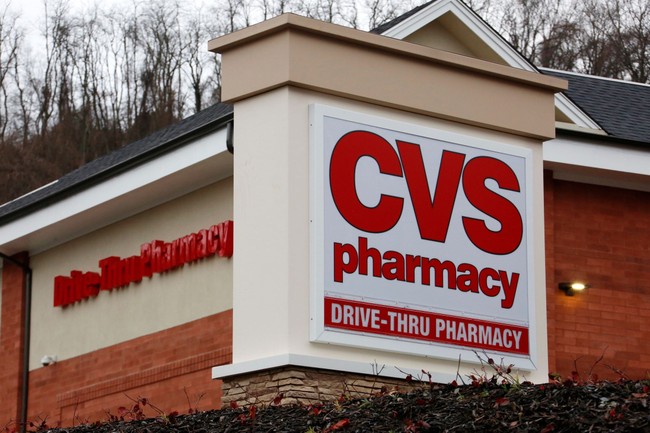We support our Publishers and Content Creators. You can view this story on their website by CLICKING HERE.

On Wednesday, the Justice Department unsealed a civil complaint alleging that CVS Pharmacy Inc. and its subsidiaries filled “unlawful” prescriptions, violating the federal Controlled Substances Act and contributing to the opiate crisis that killed hundreds of thousands of Americans.
Advertisement
The complaint also accuses CVS of seeking reimbursement from federal healthcare programs for these illicit prescriptions, in violation of the False Claims Act.
The DOJ claims that since October 2013, CVS knowingly filled prescriptions for controlled substances that lacked a legitimate medical purpose, including “dispensing massive quantities of opioids”, early fills, and dangerous “trinity” prescriptions—combinations of opioids, benzodiazepines, and muscle relaxants. CVS is also accused of filling prescriptions from “pill mill” doctors—those who issue large volumes of prescriptions without medical justification.
Prosecutors assert that CVS ignored evidence from its own pharmacists including data that showed the unlawful prescriptions being filled at its stores. The government also points to staffing shortages that hindered pharmacists’ ability to properly verify prescriptions, accusing CVS’s corporate practices of prioritizing “profits over safety.” The DOJ argues that these actions played a role in fueling the opioid epidemic, which has led to a devastating number of overdose deaths across the nation.
The complaint states:
CVS’s actions contributed to the opioid crisis, a national public health emergencywith devastating effects in the United States. Over the past decade, hundreds of thousands of Americans have died as the result of overdoses from opioids and other controlled substances,including from the illegitimate use of prescription opioids and other prescription drugs.
Advertisement
If CVS is found liable, it faces civil penalties for each unlawful prescription filled and additional penalties for federal reimbursements. The government is also seeking injunctive relief to prevent further violations. The case follows a whistleblower lawsuit filed in 2019.
In a statement, Administrator Anne Milgram of the Drug Enforcement Administration (DEA) said:
CVS is alleged to have dispensed large amounts of highly addictive opioid medications to persons they knew had no medical need for them. Simply put, they put profits over their obligation to keep their customers safe. A pharmacy is the final step in the pharmaceutical distribution process that is in place to keep customers safe. In the fight against the opioid epidemic, DEA will continue to be relentless in holding those accountable who violate our drug laws and place our communities in danger whether they are a criminal cartel or large pharmacy chain.
CVS, the largest pharmacy chain in the US with more than 9,000 pharmacies, strongly disagrees with the allegations and the “false narrative” within the civil complaint. A CVS representative told the AP that the company has cooperated with the DOJ’s investigation for more than four years.
READ MORE:
Who Do Pharmacy Benefit Managers Actually Benefit?
CVS Makes Future Managers Confess Their Privilege, Promises Not to Promote Merely on Merit
Additionally, in a statement, Amy Thibault, director of external communications for CVS wrote:
Advertisement
We will defend ourselves vigorously against this misguided federal lawsuit, which follows on the heels of years of litigation over these issues by state and local governments — claims that already have been largely resolved by a global agreement with the participating state Attorneys General.
Prosecutors continue to investigate companies involved in the mass production and distribution of opioids. The crisis, which began in the ’90s with highly addictive prescription drugs like oxycodone, has since escalated with the rise of synthetic opioids including fentanyl.
According to the CDC, in 2022, opioid-related overdoses claimed the lives of 82,000 Americans.
Last week, McKinsey & Company reached a $650 million settlement in a federal lawsuit that accused the consulting firm of advising Purdue Pharma on strategies to “turbocharge” sales of OxyContin, while downplaying the risks and addictive nature of the drug.

 Conservative
Conservative  Search
Search Trending
Trending Current News
Current News 





